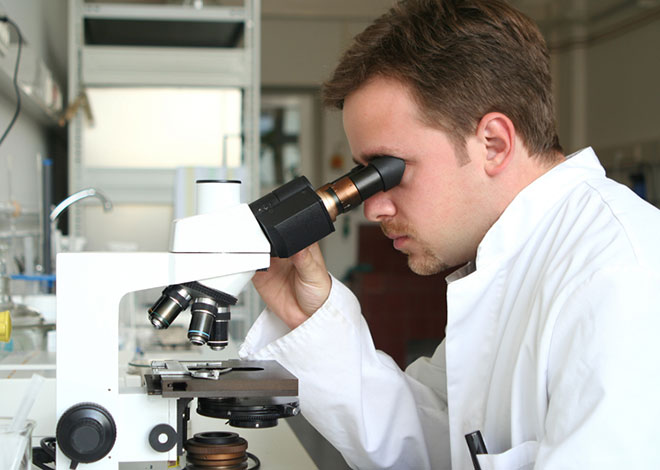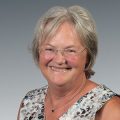Decentralised selection: How can you prepare for it?
Admission to popular study programmes such as medicine and dentistry is no longer determined by drawing lots. These programmes now follow a ‘decentralised selection’ procedure. What is this procedure? How do you prepare for this and why is decentralised selection even necessary? And for which programmes do you have to participate in this selection?

Lottery becomes decentralised selection
Students who choose such programmes as dentistry, medicine or skin therapy will have to participate in a decentralised selection procedure. In decentralised selection, the programme chooses the students who they feel are best suited for their programme. Students must register for decentralised selection prior to 15 January. They will receive the results prior to 15 April so that they will still have time to register for a different programme if necessary. The decentralised selection procedure follows certain regulations. Sometimes, decentralised selection is also referred to as ‘Numerus Fixus’. Numerus Fixus (NF in the diagram) means ‘limited number’.
Regulations decentralised selection
Some national regulations apply to decentralised selection. Students may apply to participate in a maximum of two ‘decentralised selection programmes’ in one year. This may be the same programme at two different institutions. However, for medicine, dentistry, physiotherapy and dental hygiene, a student may participate in decentralised selection at only one institution. Students may participate for a maximum of three times in a selection procedure for a programme.
How does it work?
In the decentralised selection procedure, a student’s previous educational accomplishments are reviewed; this may include a student’s marks of secondary school. The programme wants to determine if the student is ‘intelligent’ enough to follow their courses. In addition, the programme will also consider personality traits and motivation. A programme may find it important that a student has done volunteer work in healthcare, thus showing a true wish to help people who are ill. This could be important to a programme in that field. A programme may also find it important that students have interests in addition to studying. Does a student play sports? Is he or she in a drama club? Any interesting holiday jobs?
Students must thus keep their CVs updated, and not only with their school achievements. A student’s motivation is also important and is emphasised in the decentralised selection procedure. So not only are intellectual qualities important, but a student’s whole personality and motivation also play a role. Advice to students: Ask the various programmes about their selection criteria. The programmes must clearly explain what these criteria are.
Why selection?
In the ‘old’ lottery system, students with an average of 8 on their exams were always admitted to a programme. The others had to draw lots. This was, of course, an arbitrary procedure. Following a course of study is very different than going to a casino. In addition, there was no guarantee that this system selected the best students.
Programmes also look at future employment opportunities. It is not very handy to train people for a certain profession if there are not enough jobs. That is both a disappointment to the student and a waste of the government’s money. The biggest share of the cost of educating someone to be a doctor, for example, is paid by the government. And if there are not enough jobs for doctors, this is a waste that could have been prevented.
There are also programmes that want to set a maximum number of students (numerus fixus) because they can otherwise not guarantee the quality of the programme. These programmes want to be able to continue to devote enough attention to the students.
Which programmes have a selection procedure?
Most programmes do not use decentralised selection. The complete list is shown here. It is wise for a student who chooses a decentralised selection programme to have an alternative. Is the student interested in health? There are 269 programmes on ‘health’. Take a careful look at them and be sure to have a ‘plan B’. Students must register for these programmes prior to 1 May. It sometimes also happens that the interest in a certain programme is less than had been expected. In that case, everyone will be admitted.
Preparing yourself for decentralised selection
Students should prepare themselves well for the decentralised selection procedure. What exactly will be asked? Will you have to take a sample test? Or summarise texts? How will they judge your motivation? How will they view your personality traits? This differs from programme to programme. All of the HBO’s and universities deal differently with these matters.
I think it is important for students to realise that this is not just a question of ‘passing’ the decentralised selection. Decentralised selection is also an important step in a student’s choice of study. Is this programme the right one for me? I know various students who decided after the decentralised selection procedure that their programme was not the right one for them after all. And that is actually good because there are plenty of other possibilities…

Preparing for HBO or university?
Preparatory training programmes for HBO or university are sometimes offered, and some of them cost money. And commercial bureaus also prepare students for decentralised selection. To be honest, I think it quite unusual that universities and HBO institutions offer training programmes like this. And I don’t think that commercial bureaus should be involved. Why do students need training for decentralised selection? And why should this cost money if it is in the interest of the programmes that every student ends up in the right place? I would like to hear the views of these training programmes and bureaus on this topic? If you are an educational institute or a training bureau, would you please respond to this article? And, remember, decentralised selection is also a final step in the process of choosing a programme of study. It is not something that students have to ‘pass’ nor is it a self-assessment.
Additional requirements
The list of programmes also contains programmes with ‘additional requirements’. These are programmes without a fixed number of students and/or for which you need special skills. For example, studying to be a teacher of dance or music; admission tests are organised starting in January. Keep an eye on this.
Stress
Of course it is stressful if you don’t know if you’ll be accepted into the programme of your choice. The whole process of decentralised selection is not an easy one. Decentralised selection also coincides with the period of your final examinations. If you want a programme with decentralised selection, begin extra early on your process of choosing a programme and attend various open days. Are you sure that this programme really is your dream programme?

